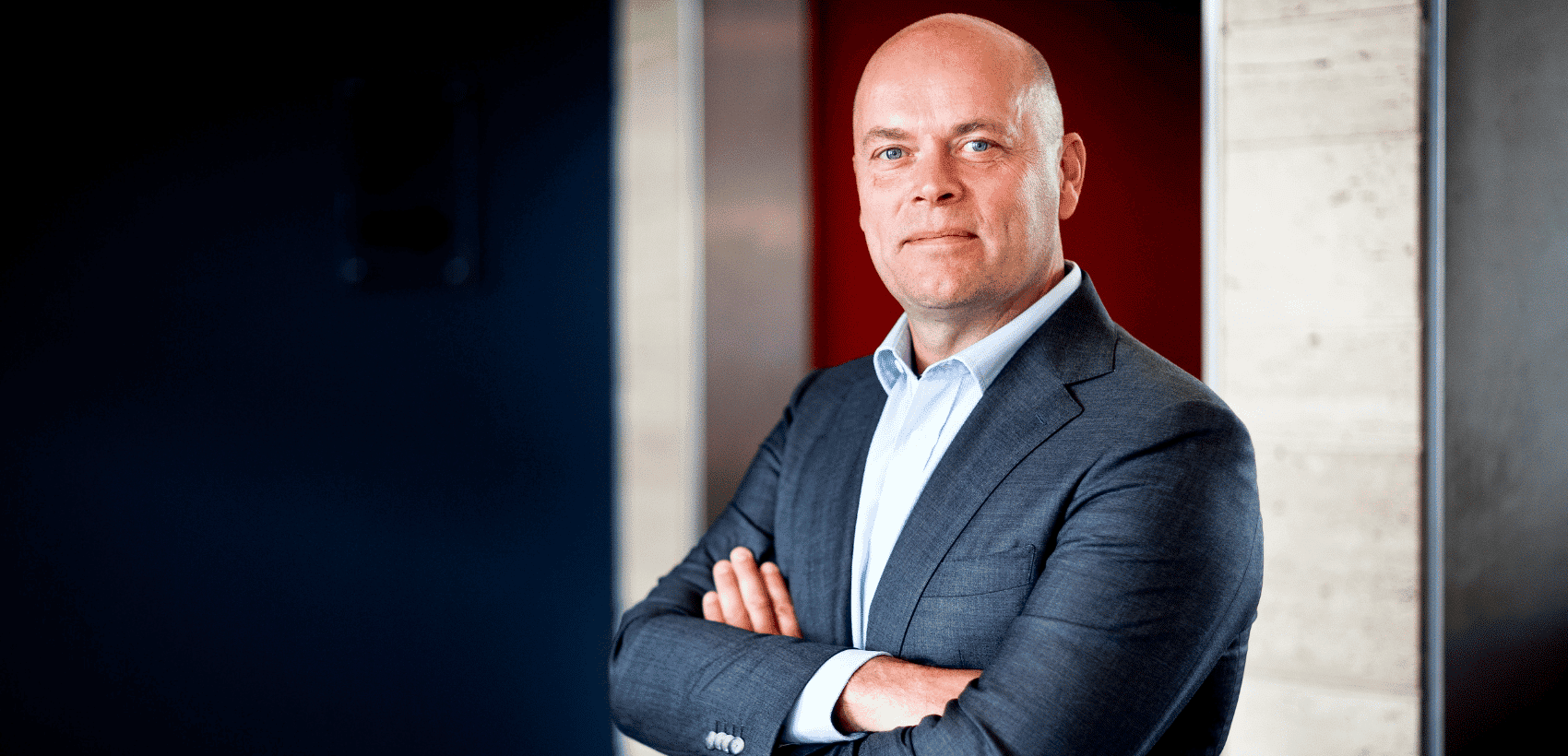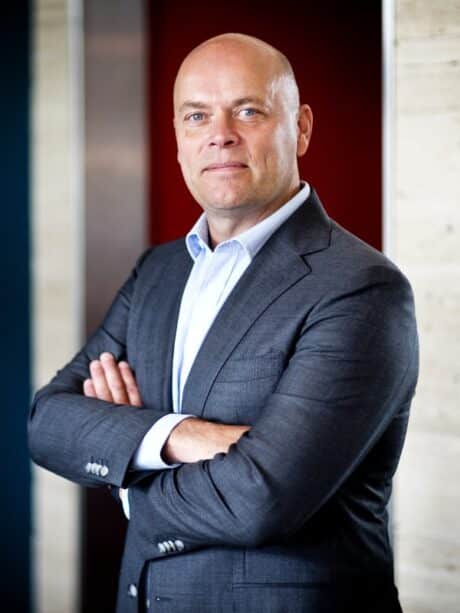

Economists save the environment
Can we achieve a sustainable economy without economic growth and is it fair that industry, under current indications, is the only sector that will almost certainly make it to energy and emissions neutrality by 2050, should not, according to many, receive a subsidy? Should we stimulate through taxes or subsidies, and would it help if the government distributed the proceeds of environmental taxes to people and companies who do not pollute and pay attention to the environment and climate?

dr. Mathijs Bouman PhD
Journalist and EconomistIt is an exciting time for the economy, the environment, the climate and the interaction between them. The sustainability organization Urgenda wants everything to go faster and climate targets to be met sooner. The Council of State (the country’s highest legal body) on the other hand, recently determined that new environmental impact assessments are necessary, threatening a major postponement of the construction of, among other things, onshore wind farms. „The conflicts of interest are enormous,“ says economist Mathijs Bouman. Both on a corporate and personal level. „For example, many people want a sustainable economy, but not wind turbines in their backyard.“
He thinks economists can help resolve those contradictions by making the short and long term more compatible by simply adjusting prices. „We need to show that it’s more advantageous to do the good than the bad. That creates happier people,“ says economist Mathijs Bouman. According to him, the environmental movement and some green, left-wing parties are not always to be relied upon, as they use environmental policy to achieve a fairer distribution of income. „That has a negative impact on necessary changes in economy and technology.“
Mathijs Bouman notes that in the Netherlands we mainly talk about the price of gas and whether measures to use less gas are profitable. Think about insulation. „Then a discussion arises about whether this leads to energy inequality and poverty when people cannot afford it. That’s not necessary. People who live in houses that are not insulated use more gas, which certainly with higher rates results in a decrease in purchasing power, but that is fixable. Not necessarily by doing something with the price of gas, but through benefits or income tax and possibly – but preferably not – through surcharges or insulation subsidies. The most important thing is that we have a suboptimal climate policy and do not have the illusion that we need to solve other social problems at the same time.“
Fix the consequences of measures, for example on purchasing power or income distribution. In which we are good in the Netherlands. „Economists can contribute by talking about it less normatively and explaining that. The government can adopt a tough environmental policy and heavily tax environmentally disruptive activities and products, then calculate the income effects and determine if they are desirable. The environmental movement may then find itself in a difficult position because this policy, which they basically advocate, increases income inequality. From which the union then demands restoration for. So they want two things at once that work against each other, which may result in nothing happening. Better to implement environmental policy in the public interest and fix it through other means.“

‚Party for people‘
Mathijs calls the situation he outlines „such an economist’s utopia“ because he basically tells people not to worry, „because we’re going to fix everything.“ Immediately he says what the problem is and should be. „Constantly they hear that the energy transition is coming and – because it has to be feasible and affordable – the effects will be fixed if it falls to. I think we should make it more of a party for the people in advance, so that they do believe that they will be compensated and the trade union movement has no reason to take action. We can adjust things with environmental taxes, the proceeds of which do not disappear into the general resources or to the Ministry of Finance, but which we distribute together. People then get a refund at the end of the year, for example. Those who have behaved in a very environmentally unfriendly manner, on the other hand, get back less than they paid. Those who have done their best, by insulating or driving less, get more.“
An economic stimulant to embrace the environmental measures and the transition? „This is almost non-economic. In fact, if you look at it purely economically, it is important to just put the tax revenues into the general resources. Then you can cut the payroll tax. But many people don’t believe that, and then you can’t win them over: ‚The government raises taxes, but never lowers them. That kind of idea fixes, which are not true by the way, do frustrate people a bit and in advance they will not vote for a party that makes such a promise. So let’s just put it all in one jar and distribute it afterwards.“
We can adjust things with environmental taxes, which we then distribute and pay back at the end of the year, for example.
Shouldn’t you always explain plans that will have a big impact on everyone, such as the climate plans recently presented by European Commissioner Frans Timmermans, which are far from being universally well received, in a positive way, so that they don’t scare people off? „Unfortunately, that’s a late conversion for me, though. It’s such an urgent problem that it’s okay to get your hands dirty in order to solve it. I don’t like bribing people at all and maybe even treating them a bit childishly, but if it works because of that, so be it. Timmermans should not say that Europe wants to make energy more expensive, but rather wants to tax the wasters and reward the thrifty. That sounds much better already.“
Programs sometimes too successful
The government often introduces subsidy programs to encourage people and companies to buy electric cars instead of polluting petrol or diesel cars. Sometimes these schemes are so successful that the goal – cleaner air, for example – is achieved, but they still have to be scrapped because they are too expensive. „After all, the government also has to ensure a reasonable running cash book. A low tax on electric and a high one on ‚fossil‘ cars may mean that the government gets less money in than projected, but really that’s like pretending that you have to raise a fixed amount of money with car taxes and that it’s eventually a problem if everyone does what you want which results in less tax revenue. That’s very weird.“
According to Mathijs Bouman, some taxes are designed to generate revenue and others to regulate behavior. „You really shouldn’t book that revenue so firmly and, in my perhaps exaggerated proposal just now, give it back around Christmas. Then the government should be celebrating, because no one will be emitting co2 emissions. Also, nobody would say that there is a hole in the budget, because you couldn’t keep the money anyway. Because there is sometimes a negative atmosphere around taxes (which has become very clear recently), politicians often choose to hand out subsidies, but these often work a lot less well than taxes. Moreover, planning something alone is not very credible. Of course he end goal is, for example, to fairly price activities that emit a lot of greenhouse gases.
Even more contradictions
Mathijs thinks it’s a very good thing that people who care about the environment are a vanguard pointing out to society problems that might otherwise remain invisible. „It’s just that they are often not the same people who have a lot of sympathy for market or price mechanisms. They say the whole system has to change or the industry has to go. Economists, on the other hand, actually save the system, adjust it and make it fairer and neater. Not all activists and, for instance, Friends of the Earth, agree with that.“
When asked what a new cabinet should do as a first step to give economists the chance to indeed save the environment and climate, Mathijs replied, „Industry pays a kind of carbon price through the European trading system. That should apply to everyone, including consumers, smaller companies, airlines and farmers, but – based on the principle that everyone is faced in one way or another with the same price for emitting a tonne of carbon – you have to look carefully at who you actually collect that price from.“ Not everyone pollutes the same amount. „That’s number one. That’s when things get vigorously triggered. Number two is that the Netherlands must be an international pioneer in introducing such systems everywhere. Starting in Europe where there is quite a bit of resistance.“

The natural gas transition
Part of working toward a better environment and preventing excessive climate change is the natural gas transition. We have to get rid of it, but the Germans are going from coal to natural gas and the Belgians are saying goodbye to fuel oil in favor of gas. Many people don’t understand this.
Mathijs: „This transition is difficult, but the ultimate goal is to stop using natural gas in 2050. I can easily explain why the Netherlands is banning natural gas and not Germany. If the Germans do replace fuel oil or lignite with gas, they will reduce carbon emissions and get closer to their goal. If we just keep using gas, we reduce nothing compared to now. That may be a bit of an accounting exercise, but you have to remember that the Dutch economy is one of the most carbon-intensive in Europe. We emit a relatively large amount of carbon dioxide per euro earned. It has been agreed that each EU country will meet a certain target. It’s a bit silly, really; you have to do it internationally.“ Is it really necessary, this transition?
I’m afraid that making the economy more sustainable will never succeed without economic growth.
Surely the U.S. president has given up his opposition to the natural gas pipeline from Russia? „Well, it’s not allowed by Biden, but the Americans are very keen to sell us shale gas, which they want to bring here in liquid form by boat. That’s why they don’t want to disturb the relationship with Europe. I don’t think this is a reason to connect a new house in a new neighborhood to gas. That house should simply be climate neutral through the use of solar panels and heat pumps. You do have to think rationally about whether you want to forcibly remove the gas from old city neighborhoods first, but you shouldn’t wait too long to tackle neighborhoods built in the 1980s and 1990s.“ Finally, we talk about the impact of the transition on the economy. „Initially, the application of renewable energy is more expensive than simply poking a hole in the earth and waiting for the oil to bubble up. For the current economy, which largely runs on oil, the transition is really going to hurt. Also, the transition will not be a great asset for employment opportunities (there will soon be too few people rather than jobs). A great many jobs will be created, but a great many will be lost. In the longer term, the transition will mainly result in energy autonomy and more power for Europe. It is important that we are ‚first movers‘. The world as a whole needs to change and if we are the first, we can provide a lot of services.
In conclusion, Mathijs argues that we need to move towards a new paradigm, but does that mean abandoning economic growth as some argue? „I am afraid that making the economy more sustainable will never succeed without economic growth, even by accident. When companies and people start doing all kinds of new things you get a disaster if the requirement is that growth is no longer allowed. Just because of investments that are being made, certainly initially that will lead to higher economic growth and probably also to great tightness in the labor and commodity markets.“
Source: ACADEMY Magazine 2021-2022

dr. Mathijs Bouman PhD
Journalist and EconomistMathijs Bouman is a Dutch economist and journalist. He is a regular contributor to the TV program...
Preisanfrage Profil ansehen